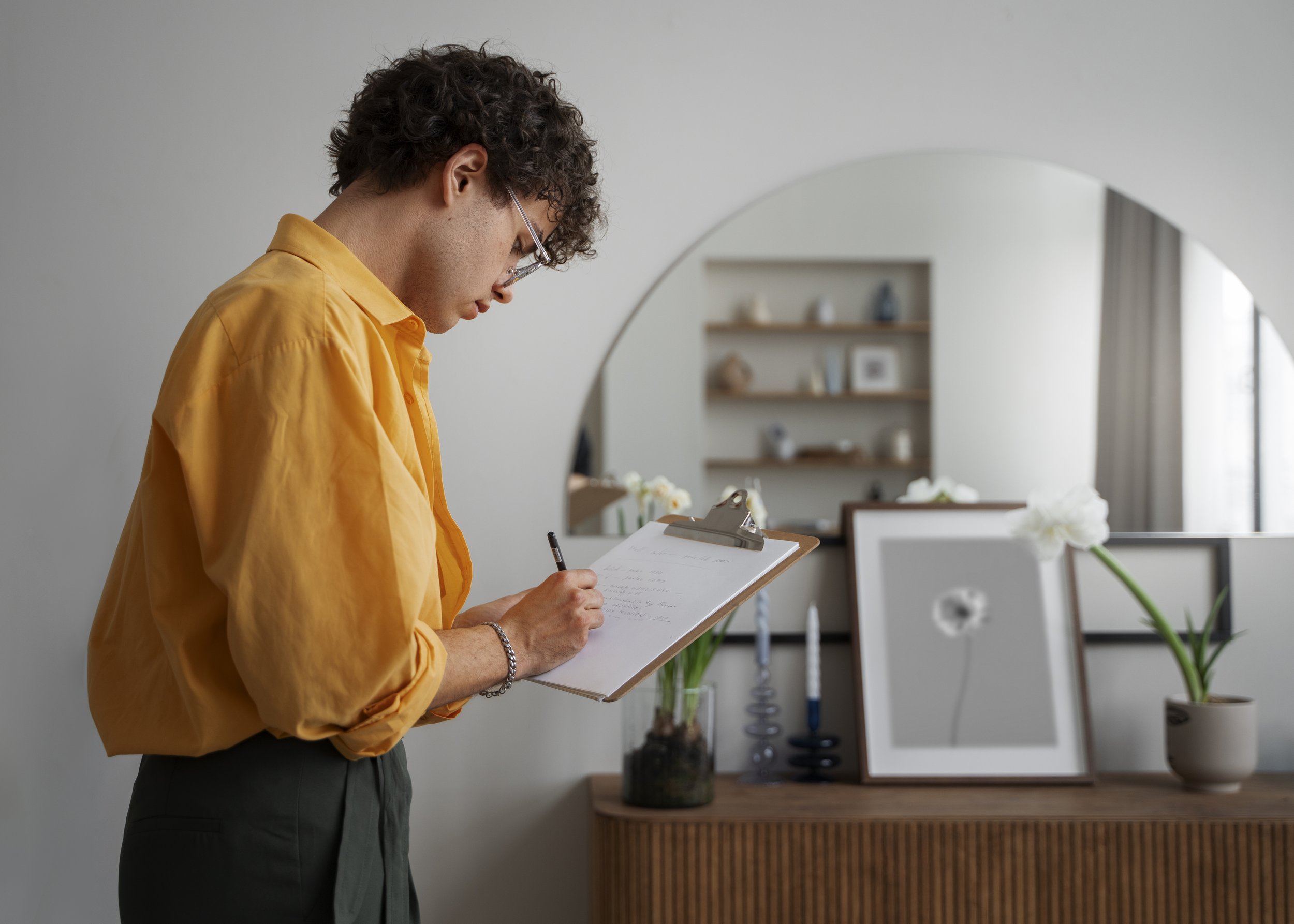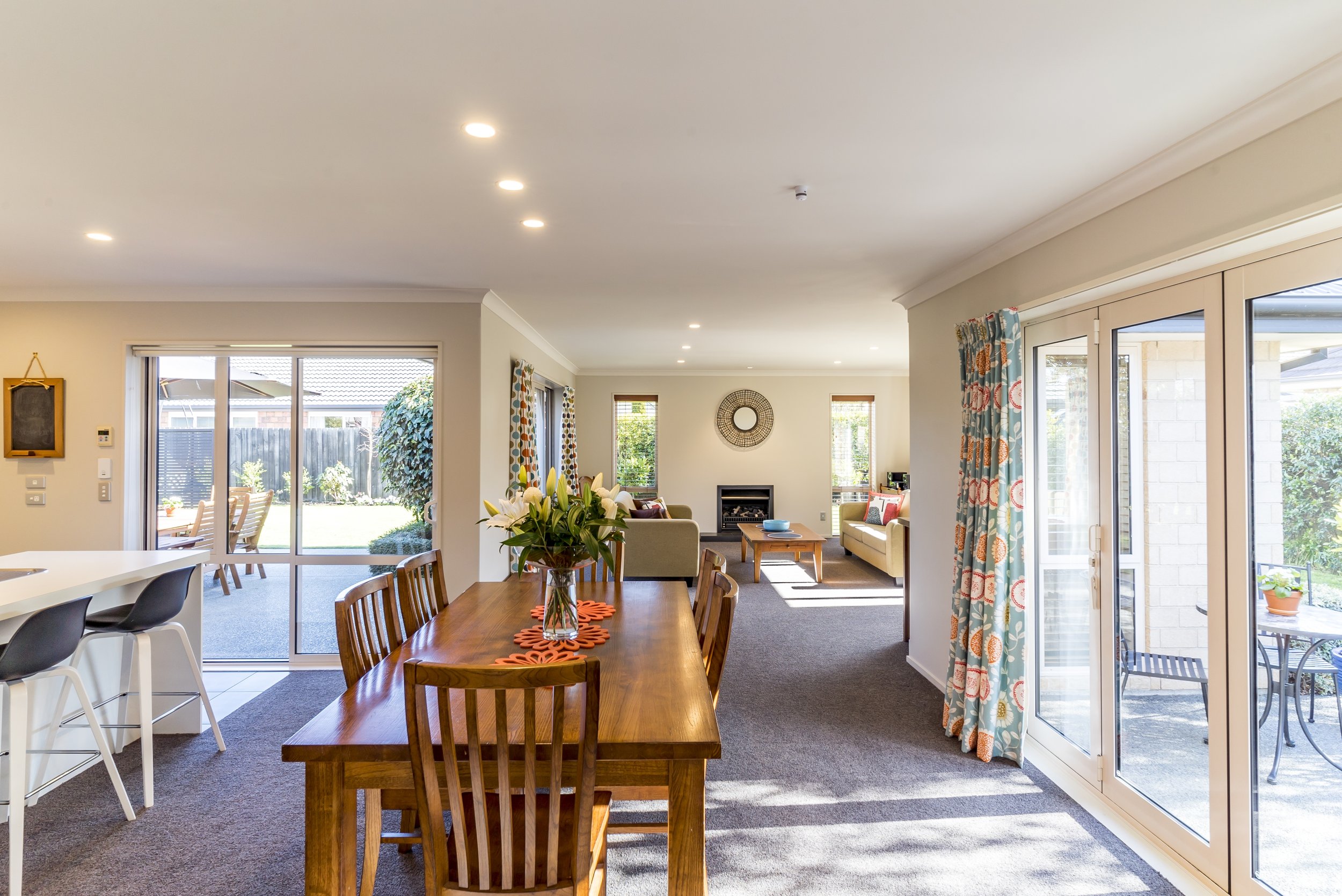3 Ways on How to Stay Organised
You now know how to become more organised, we looked at the so called "best ways to organise". You have decluttered everything in your house (or in a particular place of your home). The next big question is how to stay organised?
Staying organised is an ongoing challenge for many of us. After the initial effort of decluttering and organising, the critical question becomes: how to stay organised? If you’ve decluttered your home or specific areas of your life, it’s vital to focus on maintaining that organisation to prevent falling back into chaos.
Here, we’ll explore three fundamental ways on how to stay organised. These strategies don’t rely on fancy storage solutions or aesthetic arrangements; instead, they address the practical habits and systems required to maintain an organised life.
The Three ways on How to stay organised
In line with our aim of staying organised, if I could give you only three tips in regarding how to stay organised, what would they be? The answer might surprise you as it has nothing to do with boxes, folders and pretty organising things.
It would be:
Learning how to declutter and organise
Setting up an efficient system that works for you.
Maintain this system.
How to stay organised Tip 1: Learning how to declutter and organise
The first step to staying organised is knowing how to get organised in the first place. Decluttering and organising are skills that lay the foundation for a tidy and functional life. You’ve likely already tackled this step by sorting through your belongings and assigning them proper places.
If you’re unsure where to start, countless resources are available to guide you. Many of my blogs, my books, and courses focus on how to stay organised by decluttering and creating systems tailored to your needs. Most of this site is how to declutter and organise your home and your life. Please use the search function, look at the dozens of blogs and check out my books and courses. For this page let’s move straight into an efficient system to stay organised.
Once you’ve mastered this step, you’re ready to move on to more advanced strategies that teach you how to stay organised these are setting up systems and maintaining them.
How to stay organised Tip 2: Having a system is how to stay organised on a daily basis.
Creating efficient systems is one of the most impactful ways to stay organised. A system is a method or process you consistently follow to manage tasks and belongings. The key to an effective system is simplicity and functionality. Overcomplicated or cumbersome systems often fail in the long run.
A system can be as straightforward as unloading the dishwasher and placing items in their designated spots or as complex as managing office paperwork. The common denominator is that a system ensures everything has a place and a purpose. By streamlining tasks when you learn how to stay organised, systems help you maintain control over your environment.
Closing the loop is how to stay organised
A key thing when you create a system is to “close the loop” a concept I talk about in my books. Closing the loop on something is using the item, having used the item, possibly cleaning the item and putting it away again. You see the loop of using the item is closed there is nothing more to do.
““Closing the loop” is a critical concept in how to stay organised. This involves completing a task fully so there’s no lingering mess or unfinished business. ”
Let’s examine a few examples:
How to stay organised closing the loop example 1 – a cup of tea
Using your teacup, you make the cup of tea, enjoy it, bring it to the sink and wash it, lastly you put it away, there is nothing to do but use the item again next time you want a cup of tea. If you on the other hand don’t bring it to the sink, don’t wash it or don’t put it away you have an open loop.
How to stay organised closing the loop example 2 – your laundry
Your clothes are dirty, they get washed, dried, folded and put back into the cupboard. You can not prevent your clothes from getting dirty (that is if you are wearing them). You can procrastinate on washing clothes, drying them, folding them or putting them back leaving an open loop.
How to stay organised closing the loop example 3 - paperwork
You pay for an item and need to reconcile this receipt or claim it back, your receipt needs to come out of your wallet, added to a budgeting system, it might need to be photographed, filled for tax or saved for insurances only then can you dispose of it. If you simply keep receipts or never look at your finances you will set yourself up for a world of pain, this is not how to stay organised.
Reasons you might not do this, if you don’t do some things like adding it to your budget or filling it in your tax return system, it could be because you still might need to create a system that works for you. The reality is that we do pay for things every day if we don’t action the receipts, we will create open loops which will haunt us in the future.
By closing the loop, you build a system that will tell you how to stay organised. The system allows you to maintain control over your environment and prevent clutter from accumulating. If this concept feels overwhelming, consider investing in resources or tools that simplify your organisation efforts. Consider purchasing my book on how to organise your home and paperwork, I promise you it will help you!
“A lot of the overwhelm in our homes is because we have open loops on hundreds of items. ”
All of these actions, in the long run, make a big difference. It also means you require a some self-discipline at first until these things become habits (which is only a matter of weeks) once they are habits you feel funny not doing them.
Once you have decluttered and organised, you put in the time to create a system. After this, the key to how to stay organised is to maintain your beautifully organised spaces.
How to stay organised Tip 3: Maintenance
The final step—and arguably the most challenging—is maintaining your systems. Maintenance is the glue that holds your organisation together. Without it, even the most well-designed systems will fail.
Why Maintenance Matters when learning how to stay organised
Maintenance involves consistent, small actions that keep your space organised over time. It’s about returning items to their rightful places, following established routines, and addressing minor messes before they escalate.
Tips for Maintenance:
How to stay organised using Daily Habits: Develop routines that incorporate tidying up. For example, spend 10 minutes each evening clearing surfaces or putting away stray items.
How to stay organised Weekly Check-Ins: Dedicate time each week to reassess areas prone to clutter, such as your desk, kitchen counters, or entryway.
Accountability: Involve household members in maintenance efforts to share the workload. It automatically keeps everyone invested and might even be teaching the people you live with how to stay organised.
How to stay organised: The Role of Systems and Maintenance
Efficient systems simplify maintenance. When every item has a designated spot, returning it becomes second nature. Systems reduce decision fatigue, making it easier to maintain organisation as a habit.
For example, consider your wardrobe. If your system involves folding clothes and placing them in labelled drawers, maintenance becomes a simple task. On the other hand, if your system lacks structure, maintaining order becomes much harder.
Overcoming Challenges
Many people find maintenance difficult because it lacks the immediate gratification of a big decluttering project. However, the long-term benefits are worth the effort. Remember, maintenance doesn’t have to be perfect. Life happens, and some days will be messier than others. The key is knowing how to bounce back.
If you notice your space becoming disorganised, revisit your systems. Are they still functional? Do they need adjustments? By tweaking and refining your approach, you’ll ensure your organisation efforts remain effective.
How to stay organised trouble shooting:
If the "wheels fall off" some days, there is no problem. You know how to organise your systems and how to get back on track. If you are in a situation where your place gets messy quickly after decluttering and organising.
There could be two problems:
1. your storage solutions aren't working
2. and/or you haven't got a good maintenance system in place.
Why These Strategies on how to stay organised Are Unique
They move away from the glossy "let's get organised" articles. These strategies stand out because they address the practical realities of staying organised. They move beyond the superficial appeal of aesthetically pleasing storage solutions and focus on the habits and systems that truly make a difference.
This is truly where you make or break organising as a part of who you are and how you show up in the world. Only you can decide what is the best and most efficient system for you and only you will make or break the maintenance part of it.
Learning how to stay organised is about more than just keeping a tidy space. It’s about creating a lifestyle that supports your goals and reduces stress. By mastering these three strategies—learning how to organise, setting up systems, and maintaining them—you’ll achieve long-term success.
I think maintenance is one of the hardest things for most people. We somehow all have the energy to do a big organising session, but it is the daily continuation of this that really requires strength.
The efficient systems allow you to put things away, maintenance makes you do it.
Decluttering and organising are activities that can be done with large-scale projects and with a lot of intensity. However, even if you have the neatest house on the planet you will need to maintain it because that is the secret to staying organised.
When I talk about maintenance it means all these regular actions you do over time (eventually without thinking), that keep your space neat and tidy most of the time.
Are these systems fun?
Most often not however doing them time and time again will make life fun (e.g. no overwhelm regarding dishes, laundry or paperwork).
Maintenance is the not-so-sexy but the very practical and valuable cousin of organising). It doesn't have the brute strength and clear impact of decluttering, but it is so important.
Mastering How to Stay Organised
“For most people (myself included), this is one of the hardest parts of organising is learning how to stay organised and using this knowledge daily!”
Staying organised requires effort and commitment, but the rewards are invaluable. By learning how to stay organised, you’ll create a more functional, less stressful life. Remember:
Start by decluttering and learning basic organisational skills.
Establish systems that work for you, ensuring they’re simple and efficient.
Commit to maintaining these systems through consistent habits and routines.
The journey doesn’t end with decluttering; it continues with the daily actions that keep your space and life in order.
With dedication and a proactive mindset, you’ll master how to stay organised and enjoy the peace of mind that comes with it.
Need help to learn how to get organised and how to stay organised?
I have been working in this space for over a decade, I have written books and designed courses to help you declutter and get organised. No gimmicks just real principles that will work for your over a life time.
Want to learn more?
Get any of my books to get started.
Did you know we offer memberships
It will help you get and stay organised at home and with your paperwork.





